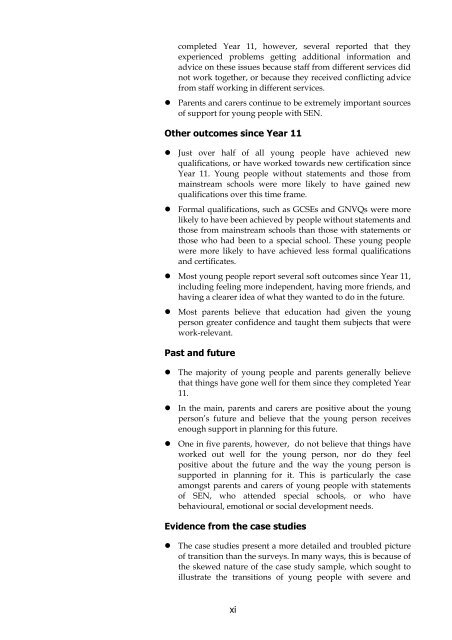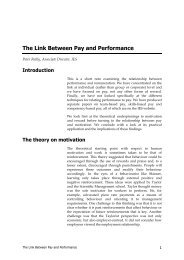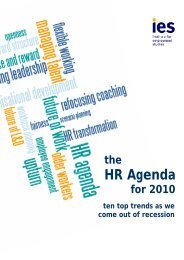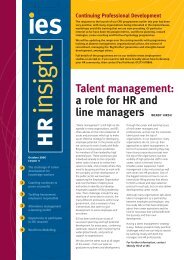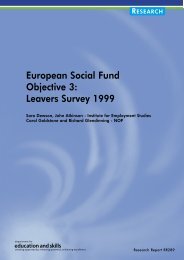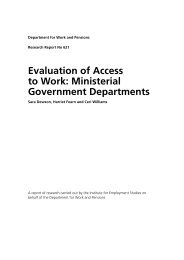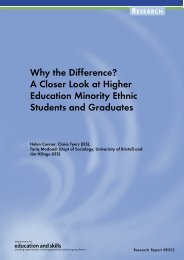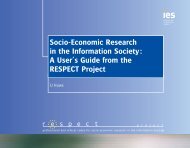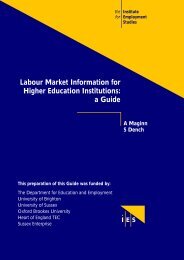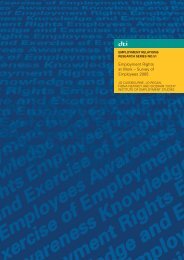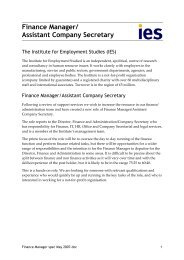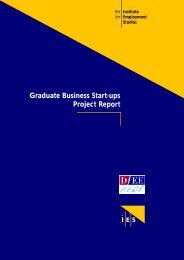Post-16 Transitions: a Longitudinal Study of Young People with ...
Post-16 Transitions: a Longitudinal Study of Young People with ...
Post-16 Transitions: a Longitudinal Study of Young People with ...
Create successful ePaper yourself
Turn your PDF publications into a flip-book with our unique Google optimized e-Paper software.
completed Year 11, however, several reported that they<br />
experienced problems getting additional information and<br />
advice on these issues because staff from different services did<br />
not work together, or because they received conflicting advice<br />
from staff working in different services.<br />
• Parents and carers continue to be extremely important sources<br />
<strong>of</strong> support for young people <strong>with</strong> SEN.<br />
Other outcomes since Year 11<br />
• Just over half <strong>of</strong> all young people have achieved new<br />
qualifications, or have worked towards new certification since<br />
Year 11. <strong>Young</strong> people <strong>with</strong>out statements and those from<br />
mainstream schools were more likely to have gained new<br />
qualifications over this time frame.<br />
• Formal qualifications, such as GCSEs and GNVQs were more<br />
likely to have been achieved by people <strong>with</strong>out statements and<br />
those from mainstream schools than those <strong>with</strong> statements or<br />
those who had been to a special school. These young people<br />
were more likely to have achieved less formal qualifications<br />
and certificates.<br />
• Most young people report several s<strong>of</strong>t outcomes since Year 11,<br />
including feeling more independent, having more friends, and<br />
having a clearer idea <strong>of</strong> what they wanted to do in the future.<br />
• Most parents believe that education had given the young<br />
person greater confidence and taught them subjects that were<br />
work-relevant.<br />
Past and future<br />
• The majority <strong>of</strong> young people and parents generally believe<br />
that things have gone well for them since they completed Year<br />
11.<br />
• In the main, parents and carers are positive about the young<br />
person’s future and believe that the young person receives<br />
enough support in planning for this future.<br />
• One in five parents, however, do not believe that things have<br />
worked out well for the young person, nor do they feel<br />
positive about the future and the way the young person is<br />
supported in planning for it. This is particularly the case<br />
amongst parents and carers <strong>of</strong> young people <strong>with</strong> statements<br />
<strong>of</strong> SEN, who attended special schools, or who have<br />
behavioural, emotional or social development needs.<br />
Evidence from the case studies<br />
• The case studies present a more detailed and troubled picture<br />
<strong>of</strong> transition than the surveys. In many ways, this is because <strong>of</strong><br />
the skewed nature <strong>of</strong> the case study sample, which sought to<br />
illustrate the transitions <strong>of</strong> young people <strong>with</strong> severe and<br />
xi


